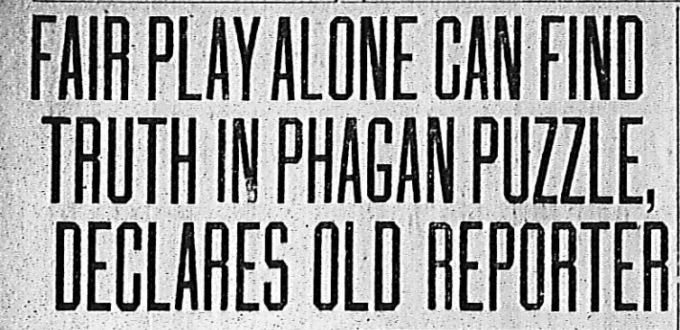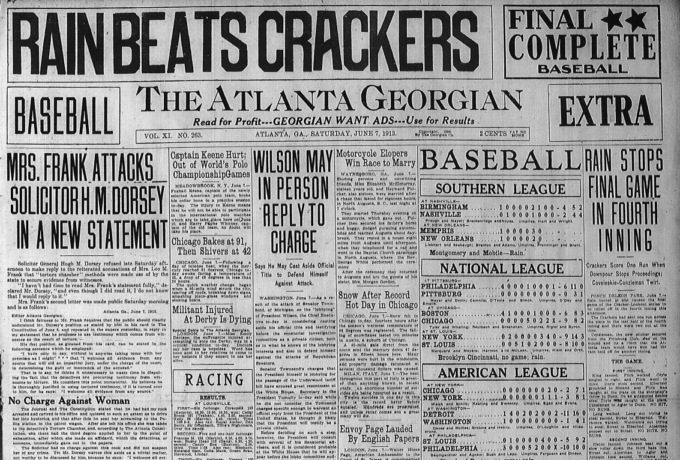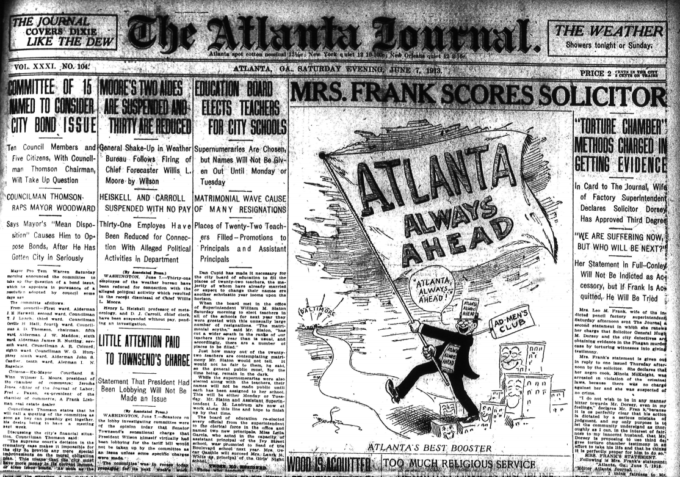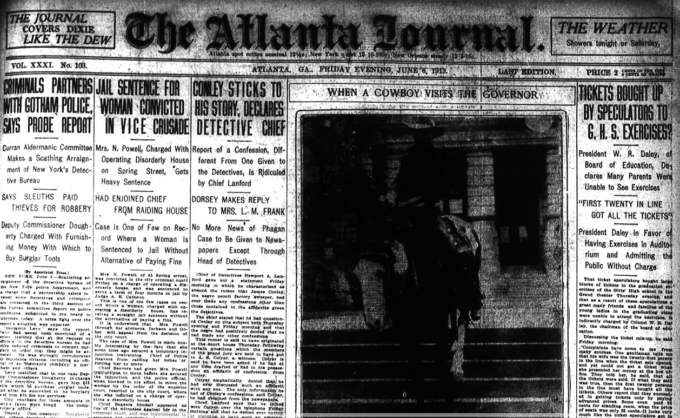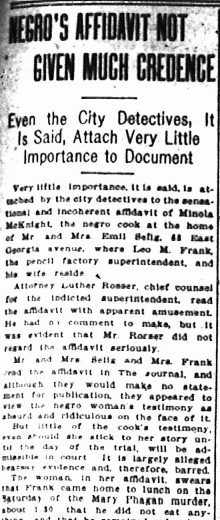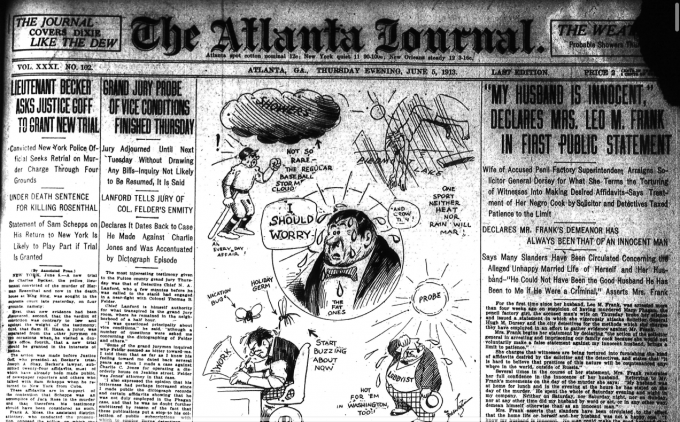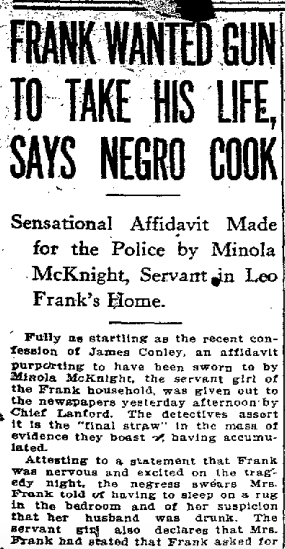Another in our series of new transcriptions of contemporary articles on the Leo Frank case.
Atlanta Constitution
August 15th, 1913
At the opening of the morning session yesterday Solicitor Dorsey motioned for the court to exclude the wife and mother of Leo M. Frank, Mrs. Lucille Frank and Mrs. Rae Frank, on account of the sensational outburst of the mother Wednesday afternoon, when she denounced the solicitor for attacking the character of her son.
In reply to the solicitor’s move to have the mother and wife of the defendant excluded from the court room, Attorney Arnold made a strong speech in their behalf, saying:
“It is a new doctrine to me where a wife and mother of the defendant cannot sit in court with him in the hour of his trial. I promise there will be no more outbreaks in court. Mrs. Frank, his wife, has sat through the trial, quietly and orderly. My friend’s conduct, I would think (meaning Dorsey) was a little more culpable than that of the mother’s. A man, even though he represent the prosecution, is not entitled to just do anything he pleases. It appears to me as though he were injecting these vile, filthy questions and innuendoes, merely for the purpose of inflaming the jury.”
The solicitor said:
“The defense has put the defendant’s character into evidence. I did not ask a witness a single question which I cannot uphold by plenty of evidence and testimony, including the statements of worthy girls and women. I submit that it is in absolute good faith that I am asking these questions. It is a mistaken idea that I am overly zealous in this case. I am only doing my duty as prosecuting attorney. It is unfair to exclude all over women and then to admit the defendant’s wife and mother and when I am doing my duty, to have them rail out at me.”
Judge Roan ruled that the two women could remain in the court room, but stated that any more such outbreaks would mean their prompt exclusion.
Wanted Questions Ruled Out.
Following this argument, Attorney Rosser made a motion to rule out certain questions and answers which Dorsey had put on cross-examination to witnesses for the defense, which questions pertained to the unsavory reports over which there have been many legal battles during the trial. He was overruled.
* * *










 Another in
Another in 
